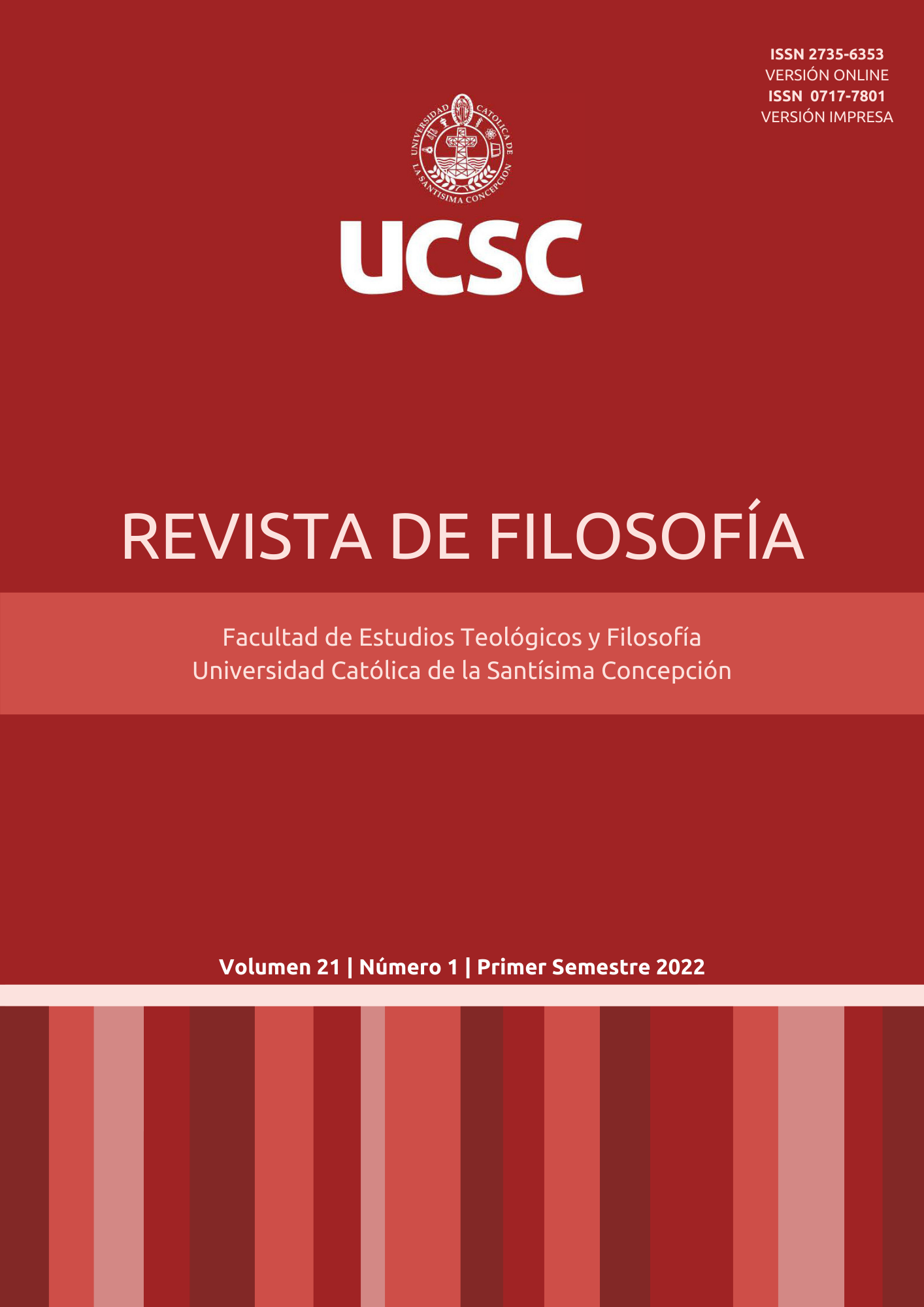La Identidad Narrativa y su reflejo en el Habitar Poético: Arraigo Espacio-Temporal desde Paul Ricoeur y Martin Heidegger
Contenido principal del artículo
Resumen
Esta investigación postula que la identidad narrativa ricoeuriana y el habitar poético heideggeriano se pueden complementar y potenciar recíprocamente para generar un arraigo que permita convivir adecuadamente con el mundo tecnológico científico. En el mundo contemporáneo todos los aspectos de la acción humana adquieren una dependencia casi total de la técnica y de sus estructuras de despliegue óntico. Dentro de este horizonte, cada faceta de la vida humana sufre una determinada modificación, y, por ende, una afectación existencial. De esta forma, nuestra vivencia espacio-temporal del mundo también es fundamentalmente modificada. Como herramienta metódica para desplegar el diálogo entre la identidad narrativa y el habitar poético, se tomará a la morada como lugar eminente para pensar el juego espacio-temporal de mundo desde donde el ser humano se reconoce. Con esta finalidad, en primer lugar, se describirá la manera en que el arraigo del habitar poético y la identidad narrativa reiteran, a su manera, nuestro sí mismo en el nivel ontológico existencial. En segundo lugar, se especificarán algunas modalidades de afectación espacio-temporales provocadas por los cambios tecnológico-científicos de nuestra era. Finalmente, como objetivo fundamental, se pretende generar una comprensión amplia de la reciprocidad entre la identidad narrativa y el habitar poético; mostrando su potencial relación dinámica, conceptual y de co-potenciación.
Detalles del artículo
Sección

Esta obra está bajo una licencia internacional Creative Commons Atribución-NoComercial 4.0.
La Revista de Filosofía UCSC es de acceso abierto y no cobra por publicar en ella. Además, regula su política de Derechos de Autor y de acceso a sus archivos de acuerdo con la Licencia Pública Attribution-NonCommercial 4.0 International (CC BY-NC 4.0), por tanto, se permite compartir (reproducir y distribuir el material en cualquier medio o formato) y adaptar (modificar, transformar y crear a partir del material) siempre y cuando se de crédito adecuadamente, se incluya la cita con los datos correspondientes. Además, no está permitido utilizar el material con fines lucrativos.
Cómo citar
Referencias
Bollnow, O. F. (1966). El hombre y su casa. La Torre, (54), 11-24.
Contreras Tasso, B. (2014). Los desafíos éticos en la era del conocimiento científico-técnico según la óptica de Paul Ricoeur. Veritas, (30), 9-27.
Han, B. (2015b). Filosofía del Budismo Zen. Herder.
Heidegger, M. (1977). GA 2. Sein und Zeit. Vittorio Klostermann.
Heidegger, M. (1997). Ser y Tiempo. Universitaria.
Heidegger, M. (2000). GA 7. Vorträge und Aufsätze. Vittorio Klostermann.
Heidegger, M. (2010). Arte y poesía. Fondo de Cultura Económica.
Heidegger, M. (2017). Filosofía, Ciencia y Técnica. Universitaria.
Husserl, E. (2012). La idea de la fenomenología. Herder.
Grondin J. (2019). Paul Ricoeur. Herder.
Mujica, H. (2015). La palabra inicial. Universidad de Valparaíso.
Ricoeur, P. (1958). L’aventure technique et son horizon interplanétaire. Christianisme social, (66), 20-33.
Ricoeur, P. (1991). Postface au Temps de la responsabilité. En P. Ricoeur Lectures 1 (pp. 271-294). Seuil.
Ricoeur, P. (1999) Lectures 2. Paris: Seuil
Ricoeur, P. (2002). Arquitectura y narratividad. Dossier, 9-29.
Ricoeur, P. (2006). Sí mismo como otro. Siglo XXI.
Ricoeur, P. (2009a). Tiempo y Narración I. Siglo XXI.
Ricoeur, P. (2009b). Tiempo y Narración III. Siglo XXI.
Rilke, R. M. (2001). Las elegías de Duino y otros poemas. Universitaria.




